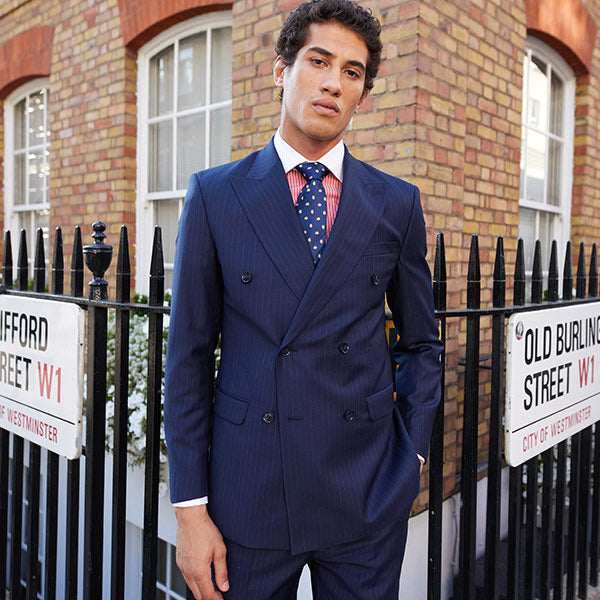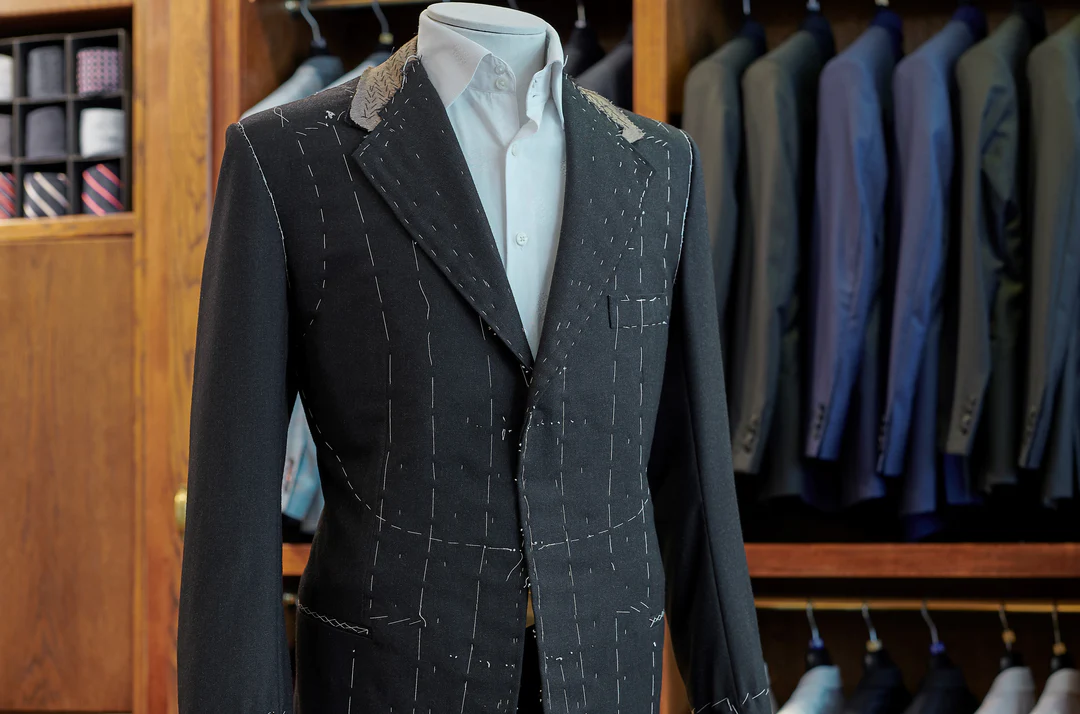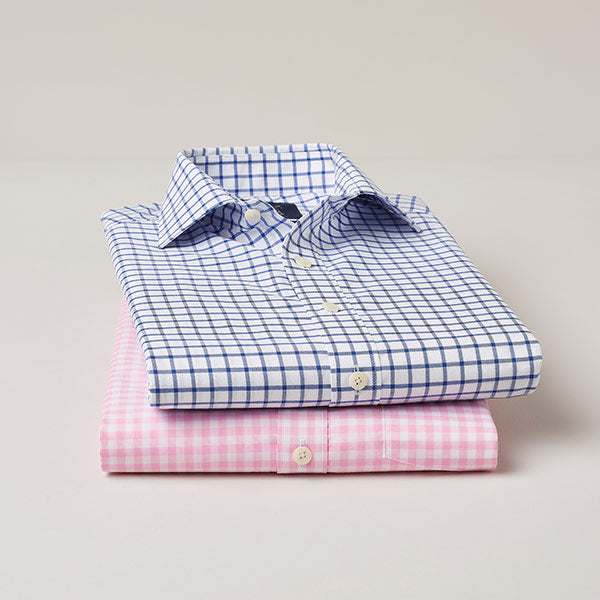It’s not one of life’s great mysteries but have you ever wondered why men’s shirts always have their buttons on the right hand placket? And why it should be exactly the opposite for women? How did this seemingly arbitrary difference come about? What theories sit behind this gender peculiarity? Given we’ve been making men’s shirts since 1938, let’s start with them. One train of thought looks at the fashions of hundreds of years ago when men’s clothing often included weaponry – whether it was for ‘Stand and Deliver’ or for reasons closer to the right side of the law. A right-handed man would pull his weapon out with his primary hand and unbutton with his left. The proliferation of ‘hand in the waistcoat’ paintings of the time looks to support this idea. Delve back even further to armoured soldiers on the battlefield and you’ll find the accepted fighting position was to face the enemy with the left side protected by the shield. Plates of armour overlapped from left to right to reduce the chance of an enemy’s lance point slipping between the plates. "Dieu et mon droit" The tradition of buttoning left to right transferred to coats, then shirts and continues to this day. So that explains why our buttons are on the right, but why should it be on the left for women’s shirts and blouses? This is where the introduction of the button comes into the mix. No-one is quite sure when the button was invented (at least a thousand years ago) but one thing we do know is that during the Renaissance they became more and more elaborate – indeed the fancier the buttons worn, the higher the social status. Buttons were expensive and the prerogative of the wealthy. Convention dictated that servants were essential as ‘dressers’ for the finely be-decked ladies and gents of the time and maid-servants, like everyone else - were most commonly right-handed. Another theory revolves around babies. Given this right-hand dominance, mothers tend to hold their babies in their left arm, keeping the right one relatively free. Ipso facto – tops or blouses that open on the right, makes breast-feeding easier. A less popular theory, but given some credence – has to do with the style of horse-riding adopted by women. By Tudor times the ‘saddle of queens’ (the side-saddle, rode to the right) was considered the proper way for a lady to ride – astride just ‘would not do’. So putting their shirt and dress buttons to the left lessened (to a small extent), the breeze that would flow into clothing as they rode along. Fashion often has a way of trickling down through from the better off to the less so – haute couture to high street and the ‘right-over-left’ designs remained, even when dressing became more of a do-it-yourself affair. There’s absolutely no reason the side a shirt buttons couldn’t be switched – it’s just that inertia has protected a tradition few people notice or complain about it the first place! Or is that, we secretly applaud ‘Vive la Difference’?
New duty rules limit shipping on some items
Get 15% off when you sign up to our Newsletter
Contact Us: +44(0)28 7939 5005
New duty rules limit shipping on some items
Get 15% off when you sign up to our Newsletter
- Shop all suits
-
Shop by Collection
-
Shop by Color
-
Shop by Occasion
-
Discover
- Shop all shirts
-
Shop By Category
-
Shop by Fit
-
Shop by Style
-
Shop By Colour
-
DISCOVER
- Shop all casual
-
Shop by category
-
Shop by Occasion
-
Active
-
Discover
- Shop all accessories
-
Shop by Collection
-
Gifts
-
Personalisation
-
Discover
- Shop all gifts
-
Shop by Price
-
Take a Look
-
Discover
Contact Us: +44(0) 28 7939 5005
The Curious Case of Which Side Your Shirt is Buttoned
06 Aug, 2024
|
Savile Row
Share:
Related blog posts

Threads
Get to Know Jeffrey Doltis
We think it’s important to get to know the people behind a brand —...
Read more

Threads
What to pack for a city break
Early summer is a great time of year for quick city breaks, whether that’s...
Read more

Threads
How to Look Good in Chinos
There comes a time in every man’s life when they grow tired of jeans...
Read more

Threads
What to Wear to Wimbledon 2024
Heading to Wimbledon yet not sure what to wear? To help, we’ve put together...
Read more

Threads
What to Wear to a Winter Wedding
Winter wedding season is in full flow, and with it comes the tedious task...
Read more

Threads
What Gifts Do Men Want for Christmas?
Christmas is almost here and it’s likely you still have a couple of presents...
Read more
luxury clothing at affordable prices

ABOUT US
Shirtmakers and tailors since 1938, we're a family-run business based in the heart of London's Savile Row. We provide genuine luxury clothing at affordable prices, whi...
READ MORE >

Visit Our Bespoke Store
Our new bespoke store is ready and waiting. For the first time ever, you can try on suits and shirts before you order them. You can also take a closer look at selected styles,...
FIND OUT MORE >

Our Bundles Explained
Start saving with the best deals available at savilerowco.com. Learn how our bundle deals work and start shopping.
FIND OUT MORE >
Your Basket ( 0 )
You're $160 away from FREE SHIPPING
Your cart is currently empty.
It looks like you are browsing from another country
or select a store from the list:
Please select a country below
 NEW IN
NEW IN